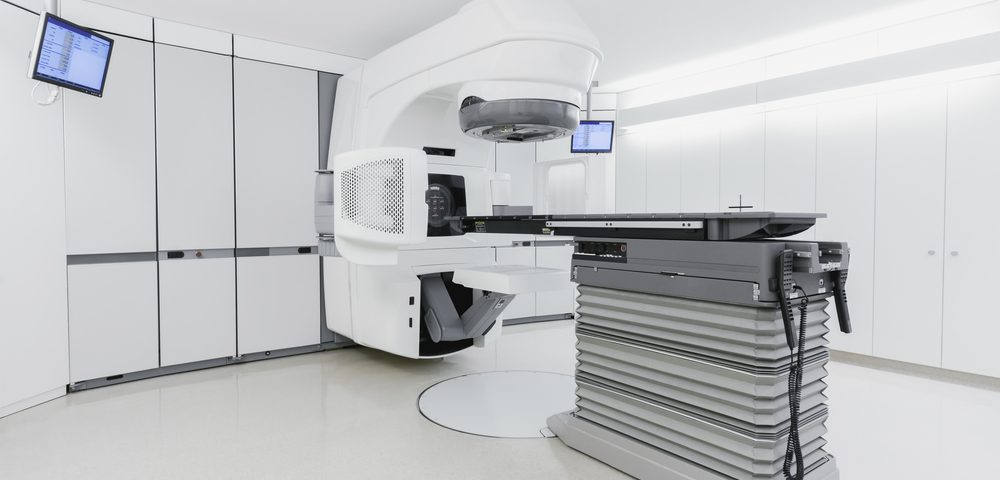Men with prostate cancer who undergo surgery have similar long-term outcomes whether they receive radiation therapy shortly after the surgery or only when signs of disease recurrence appear, suggesting that some may be spared the radiation treatment, a Phase 3 clinical trial shows.
Findings from the trial were shared in an oral presentation, titled “Timing of Radiotherapy (RT) After Radical Prostatectomy (RP): First Results from the RADICALS RT Randomised Controlled Trial (RCT) [NCT00541047],” at the European Society for Medical Oncology (ESMO) 2019 Congress, held recently in Barcelona, Spain.
These are the late breaking results of the Phase 3 RADICALS-RT (NCT00541047) trial, designed to investigate if the addition of radiation therapy to androgen deprivation therapy (ADT) after prostate removal surgery improves the clinical outcomes of men with prostate cancer.
The study enrolled 1,396 men who had undergone surgery to remove their prostate at several clinical centers across Canada, the U.K., Denmark, and Ireland.
All participants were randomly assigned to receive one of two post-operative treatment regimens: either adjuvant radiotherapy, or observation only, with the option to resort to radiotherapy if the cancer returned (standard care).
Data from RADICALS-RT presented at the ESMO Congress showed that at a median follow-up of five years, 85% of men receiving adjuvant radiotherapy and 88% of those who had been kept on observation continued to show no signs of disease worsening, suggesting that routine radiotherapy was not superior to standard care at preventing disease recurrence.
Patient-reported outcomes also indicated that urinary incontinence after one year of treatment was worse in 5.3% of the men receiving adjuvant radiotherapy compared with 2.7% of those on standard care. Severe (grade 3) and life-threatening (grade 4) urethral stricture (scarring of the urethra) was more common in men treated with adjuvant radiotherapy than in those who had been kept on observation (8% versus 5%).
“The results suggest that radiotherapy is equally effective whether it is given to all men shortly after surgery or given later to those men with recurrent disease. There is a strong case now that observation should be the standard approach after surgery and radiotherapy should only be used if the cancer comes back,” Chris Parker, MD, who presented the trial findings at ESMO, said in a press release.
“The good news is that in future, many men will avoid the side-effects of radiotherapy. These include urinary leakage and narrowing of the urethra, which can make urination difficult. Both are potential complications after surgery alone, but the risk is increased if radiotherapy is used as well,” added Parker, a consultant clinical oncologist at The Royal Marsden NHS Foundation Trust and professor of prostate oncology at the Institute of Cancer Research.
Findings from RADICALS-RT were confirmed by data from a collaborative meta-analysis study, also presented at the ESMO Congress in an oral presentation titled, “Adjuvant or salvage radiotherapy for the treatment of localised prostate cancer? A prospectively planned aggregate data meta-analysis.”
The pre-planned meta-analysis included data from 2,151 men who participated in RADICALS-RT and two other Phase 3 trials — GETUG-AFU 17 (NCT00667069) and RAVES (NCT00860652) — that compared the effects of adjuvant radiotherapy with early salvage radiotherapy following surgery in men with localized prostate cancer.
Analysis found no evidence that adjuvant radiotherapy improved event-free survival compared with early salvage radiotherapy. In fact, the difference in the five-year event-free survival between the two treatment regimens was found to be approximately 1%.
“Results of the ARTISTIC meta-analysis confirm those of RADICALS, and provide greater evidence to support the routine use of observation and early salvage radiotherapy,” said Claire Vale, PhD, a researcher at the MRC Clinical Trials Unit at University College London.
“These are the first results to suggest that postoperative radiotherapy for prostate cancer could be omitted or delayed in some patients. This will shorten the duration of treatment for these patients and allow better use of resources since today’s radiotherapy is technically sophisticated and therefore expensive. However, strict follow-up will be needed to identify patients requiring salvage radiotherapy,” said Xavier Maldonado, MD, from the Hospital Universitari Vall d’Hebron in Barcelona.
Maldonado noted that a longer follow-up period will be required to assess the survival of men participating in RADICALS-RT, as well as the primary goal of freedom from distant metastases (the time patients lived without their cancer spreading to other regions in the body).
He also added that future research should focus on finding ways to identify patients who would be more likely to require treatment with adjuvant radiotherapy to avoid having their cancer return or spread at a very early stage.
“We need to develop genomic classifiers to help decide the best management strategy for each patient — whether it should include surgery and/or radiotherapy, and at which time points,” he said.

